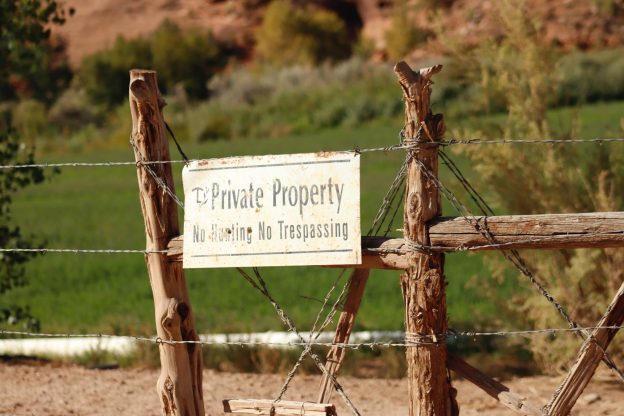Thomas Webb – Americans love the great outdoors. So much in fact, that the outdoor recreation economy currently accounts for about 1.9% of the United States’ GDP, or $454 billion annually. The outdoor recreation economy is even more important to certain states, where the percentage of total GDP is much higher (Wyoming (3.6%), Utah (2.7%), Colorado (2.7%), and Montana (4.4%)). Americans, more than ever, are spending their leisure time outside, which has caused the entire outdoor recreation industry to swell by 18.9% in terms of inflation adjusted GDP in 2021.
Often, threats to the outdoor recreation business come from concerned citizens and environmental groups. This sort of conflict famously came to a head in Robertson v. Methow Valley Citizens Council, when a local environmental group successfully challenged the U.S. Forest Service’s issuance of a permit to build a ski resort on public federal land. But, in our increasingly divided world, where conflict is often drawn between the rich and everyone else, new threats to America’s outdoor heritage lurk in unexpected places.
In Wyoming, four Missouri hunters have been thrown into the center of a conflict over the right to use public lands that implicates the outdoor recreation industry as well as the property values of surrounding landowners. This controversy stems from a practice known as “corner crossing,” where hunters, anglers, and other outdoorspeople access public federal lands that are surrounded by private land in a checkerboard pattern. To access the public area, the hunters had to cross precisely at the corner of the public lands and the private lands, so as to not trespass—or so they thought. Even though the hunters crossed at the corner, and argue they only crossed from public land to public land, Fred Eshelman, the private landowner with an estimated net worth of $380 million, brought an unsuccessful criminal trespass suit in state court. Another civil suit for the same issue is moving through the U.S. District Court for Wyoming with a trial date set for this summer.
Every first-year law student is familiar with the property doctrine of Cuius est solum, eius est usque ad coelum et ad inferos, which states that a property owner owns the land below their property (all the way to hell) and above their property (to the Heavens). In the case of corner crossing, who owns the space above the area where the four corners meet? Geographically, there is no zone between the public and private parcels of land. In the Wyoming case, the hunters actually had to use a ladder to cross over a fence into the public federal land.
In much of the United States, and particularly in the West, the federal government owns vast quantities of land, which accounts for about 28% of the total landmass of the country. In Wyoming, the federal government owns 46.7% of the land. All of this land, generally speaking, is free for Americans to use and benefit from. However, one study identified 8.3 million acres of corner locked land in the United States West, with over 27,120 land-locking corners. Aaron Weiss, with the Center for Western Priorities, argues that this corner locking indicates “there are millions of acres of public land across the West that are not necessarily accessible to the public.” Buzz Hettick, with Wyoming Backcountry Hunters and Anglers, joining Weiss said “the main reason that hunters and fishermen either quit or never start hunting is because they just have no place to hunt and fish.” By cordoning off entire sections of public lands, the outdoor recreation economy in the West may be limited in its ability to grow simply because of a lack of available land.
Eshelman, the landowner, is not without his own concerns. An expert witness retained in the case assessed that allowing corner crossing would lower the value of the ranch by 30%, or $9.39 million. Jim Maggagna, Executive Vice President of the Wyoming Stock Growers Association, also voiced concerns about corner crossing and the realities of ranching, “those boundaries between private and public land . . . they exist on a piece of paper.” Echoing Eshelman, Maggagna continued, “If the federal government is gonna [sic] control it, then we’ve devalued private property[.]”
As more Americans explore the beauty of our country, and support the outdoor recreation economy as a consequence, the issue over public access to federal lands will only escalate. Anglers in Colorado are fighting with private clubs over fishing rights. In Utah, a private landowner cut off access to a popular skiing and hiking locale, which the U.S. Forest Service is challenging. All across the West, Americans are fighting to retain their rights over access to public lands, and if they lose, the outdoor recreation business will also suffer. Weiss summed up the issue by stating, “As the changing West comes in – the billionaires buying up ranches, climate change drying up grass lands and ranch land – all of that together creates this very fraught scenario.”


